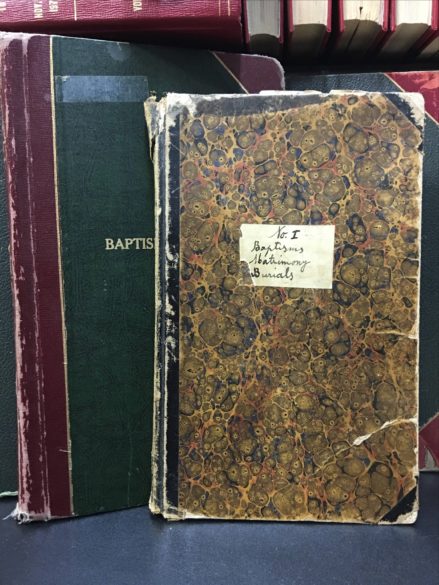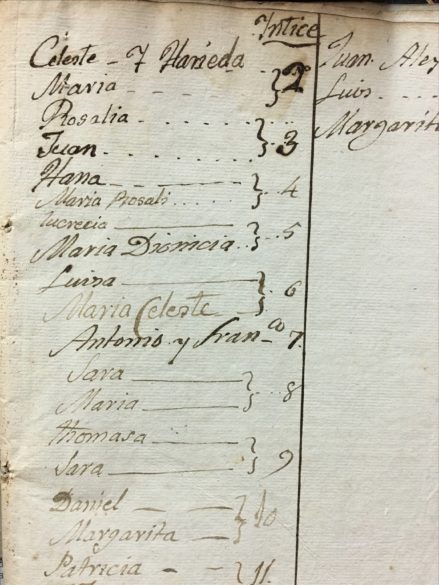By Mary Woodward
JACKSON – To begin this series exploring race and our diocesan church, I want to offer a disclaimer. These articles are meant to spark thoughts and conversations. They are not meant to call anyone out or to embarrass anyone’s grandparents or great-grandparents.
As stated in the introductory column in the last edition of Mississippi Catholic, we will be exploring history – an extremely unique history – and we will remain true to the history with all its good and bad. With that being said, let’s get started.

“Finding Your Roots” is a popular PBS show tracing the ancestry of various celebrities and well-known public figures. Harvard professor, Dr. Henry Louis Gates, Jr., is the host and creator of the series. Professor Gates is the Director of the Hutchins Center for African and African American Research at Harvard. Gates has done many documentaries and works on African American history, ancestry and the American slave narrative.
Genealogy has become a major industry over the past decade because of shows such as “Finding Your Roots.” People have become very interested in their family origins and the journeys of their ancestors.
Ancestry.com, a website that has grown out of work done by the Mormon Church, has a database and links from which a person can find U.S. Census records, marriage and death records, ship passenger lists, military service records and more. One can develop a family tree and link with others seeking the same ancestors from other families throughout the country and world.
I used Ancestry to trace my ancestors back to the arrival of Christopher Woodward at the colony of Charlestown in Virginia in 1623. Somehow, he got on the ship in England as Christopher and when he disembarked in the colony, he was Sir Christopher.
But what happens when an African American tries to take the same resource and trace her or his family’s journey. In all probability the research will hit a dead end after four or five generations unless there is a family Bible that has been around for 200 years or there is someone of European origin in the line.
This past week, Fabvienen Taylor, former photojournalist for Mississippi Catholic and current Diocesan Tribunal office manager, and I talked about a visit she once made to the diocesan archives vault. She was doing a story on the microfilming of parish sacramental registers. The registers are microfilmed and now digitized every 10 years so that there will be a copy of the records in case something happens to them at the parish.
Sacramental records are our most valuable records because baptismal records document the faith life of a person. The record can also be used to establish an identity if there is no other record such as a birth certificate.
Taylor, who is African American, began to tell me that Frances Boeckman, previous diocesan archivist who was quite knowledgeable in diocesan history and very devoted to the archives, had pulled one of the older baptismal records from Natchez and opened it to a particular page for her to see. The page from the mid-1800s contained handwriting in India ink and featured a list of first names.

Taylor remarked to me how she recalled how elegant and ordered the handwriting was. She then realized the records were those of slaves owned by the man listed at the top of the page. This caused her to look past the beauty of the handwriting and see the true ugliness of the content. It was at this time I revealed that in my own journey I had discovered an ancestor who in fact owned slaves. I am sure there were more.
Beautiful handwriting chronicling the evil of slavery – meticulous recordings of this great sin whose aftermath still plagues our country today. This unjust and immoral system, although legal at the time, and its legacy is a part of our diocesan history. We will address this throughout this series and in a particular way in the next article when we meet some of the individuals in the records of Spanish Colonial Natchez in the 1790s.
And so, maybe now we can understand why an African American’s attempts at tracing her or his roots through records may end shortly after it begins. It is difficult to connect families when they have been separated in the slave trade and listed only by the first name. Husbands taken from wives, children from mothers – all given names by the owner, thus almost erasing any trace of the person’s existence or dignity as a human person.
Yes, the records on the page are elegantly inscribed and at times connections are made that start a small thread of hope in terms of tracing ancestry. But one cannot look at them and not be profoundly affected by the magnitude of the content.
To be continued …
(Mary Woodward is Chancellor and Archivist for the Diocese of Jackson)
